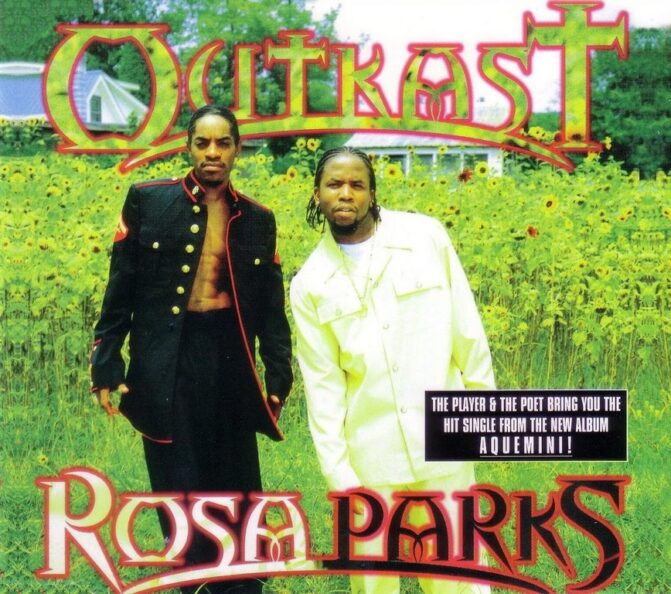Outkast’s “Rosa Parks” Celebrates 27 Years of Innovation and Controversy in Hip-Hop
Twenty-seven years ago, Outkast released “Rosa Parks,” a landmark single from their critically acclaimed 1998 album Aquemini. The track merges funk-infused production with incisive social commentary, making it one of the most significant—and sometimes contentious—songs in hip-hop history.
Pioneers of Southern Rap
By the time Aquemini was released, Outkast had already secured their position as innovators within the Southern rap scene. Comprised of André 3000 and Big Boi, the duo had previously shattered genre stereotypes with their first two albums, Southernplayalisticadillacmuzik and ATLiens. Aquemini marked a transformative moment in their career, and “Rosa Parks” was poised as the lead single, symbolizing Outkast’s distinctive sound and asserting their legitimacy in the rap industry.
The track is distinguished not only for its production—crafted by Organized Noize and Outkast—but also for its powerful lyricism. The chorus, featuring the lines, “Ah ha, hush that fuss / Everybody move to the back of the bus,” serves as a metaphor for the group’s challenge against industry marginalization. Their lyrics are imbued with sharp wit and intense Southern pride, underscoring their unique identity in a genre heavily influenced by East and West Coast narratives.
Legal Challenges and Controversy
However, "Rosa Parks" was not without its controversies. In 1999, the estate of civil rights icon Rosa Parks filed a lawsuit against Outkast, asserting that the song misappropriated Parks’ name and did not sufficiently honor her legacy. The legal battle lasted several years before ending in an out-of-court settlement, during which Outkast committed to supporting educational initiatives about Parks’ contributions to civil rights.
Despite the tensions generated by the lawsuit, “Rosa Parks” remains a pivotal moment in Outkast’s discography. The song exemplifies their ability to push musical boundaries while embedding social insights, thus solidifying Aquemini as one of the greatest hip-hop albums of all time. Notably, the track achieved commercial success, peaking at number 19 on the Billboard Hot 100 and garnering a Grammy nomination for Best Rap Performance by a Duo or Group.
Enduring Legacy
Decades after its release, “Rosa Parks” continues to be celebrated as a cornerstone of Outkast’s influential catalog. The song captured the essence of late-90s hip-hop while reinforcing Outkast’s message of originality and resilience. As they declared through this track, they were not merely following the trends of the time; they were here to establish new ones.
In retrospect, the significance of "Rosa Parks" exemplifies how music can serve as a platform for social commentary, blending art and activism seamlessly. It resonates with today’s audiences, reflecting the ongoing struggles for representation and equality in the music industry and beyond. For listeners and hip-hop enthusiasts alike, the song stands as an enduring testament to Outkast’s artistry and influence within the genre.
To experience this iconic track, you can listen to “Rosa Parks” on various music platforms, including YouTube.









